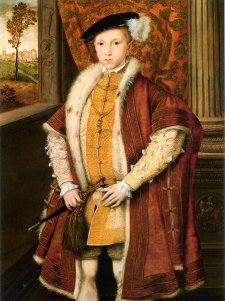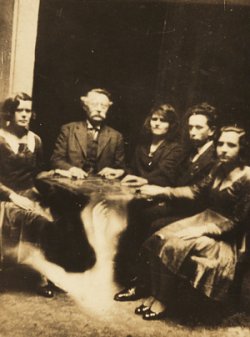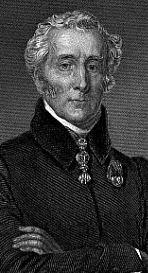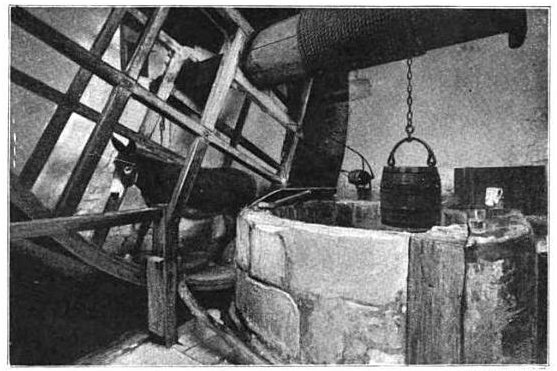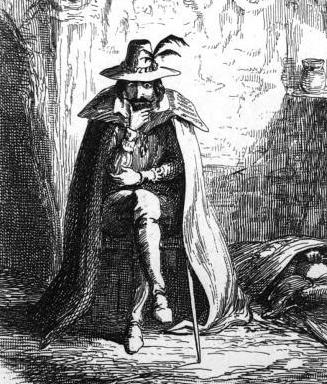From the London Times, July 4, 1874, an account of an attack by a giant squid on the schooner Pearl, as told by its master to the rescuing steamer Strathowen:
I was lately the skipper of the ‘Pearl’ schooner, 150 tons, as tight a little craft as ever sailed the seas, with a crew of six men. We were bound from the Mauritius for Rangoon in ballast to return with paddy, and had put in at Galle for water. Three days out we fell becalmed in the bay (lat. 8°50’N., long 84°5′ E.). On the 10th of May, about 5 p.m.,–eight bells I know had gone,–we sighted a two-masted screw on our port quarter, about five or six miles off; very soon after, as we lay motionless, a great mass rose slowly out of the sea about half a mile off on our larboard side, and remained spread out, as it were, and stationary; it looked like the back of a huge whale, but it sloped less, and was of a brownish colour; even at that distance it seemed much longer than our craft, and it seemed to be basking in the sun. ‘What’s that?’ I sung out to the mate. ‘Blest if I knows; barring its size, colour and shape, it might be a whale,’ replied Tom Scott; ‘And it ain’t the sea sarpent,’ said one of the crew, ‘for he’s too round for that ere crittur.’ I went into the cabin for my rifle, and as I was preparing to fire, Bill Darling, a Newfoundlander, came on deck, and, looking at the monster, exclaimed, putting up his hand, ‘Have a care, master; that ere is a squid, and will capsize us if you hurt him.’ Smiling at the idea, I let fly and hit him, and with that he shook; there was a great ripple all round him, and he began to move. ‘Out with all your axes and knives,’ shouted Bill, ‘and cut at any part of him that comes aboard; look alive, and Lord help us!’ Not aware of the danger, and never having seen or heard of such a monster, I gave no orders, and it was no use touching the helm or ropes to get out of the way. By this time three of the crew, Bill included, had found axes, and one a rusty cutlass, and all were looking over the ship’s side at the advancing monster. We could now see a huge oblong mass moving by jerks just under the surface of the water, and an enormous train following; the oblong body was at least half the size of our vessel in length and just as thick; the wake or train might have been one hundred feet long. In the time that I have taken to write this, the brute struck us, and the ship quivered under the thud; in another moment, monstrous arms like trees seized the vessel and she heeled over; in another second the monster was aboard, squeezed in between the two masts, Bill screaming ‘Slash for your lives;’ but all our slashing was of no avail, for the brute, holding on by his arms, slipped his vast body overboard, and pulled the vessel down with him on her beam-ends; we were thrown into the water at once, and just as I went over I caught sight of one of the crew, either Bill or Tom Fielding, squashed up between the masts and one of those awful arms; for a few seconds our ship lay on her beam-ends, then filled and went down; another of the crew must have been sucked down, for you only picked up five; the rest you know. I can’t tell who ran up the ensign.
“This tale has never been confirmed,” notes Bernard Heuvelmans, “and it may well have been an opportune hoax, for the Strathowen is not to be found in Lloyd’s Register for that year.”
